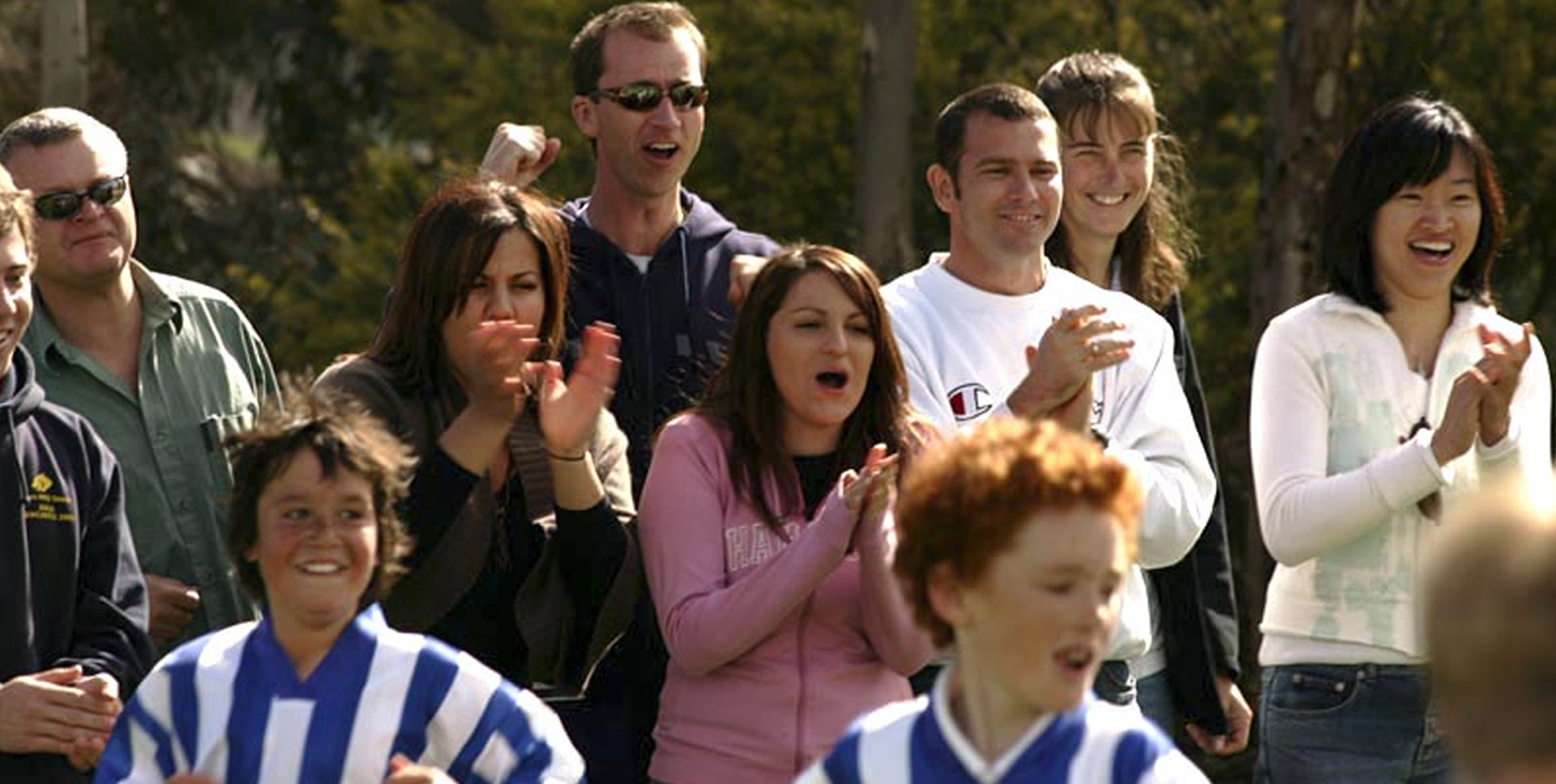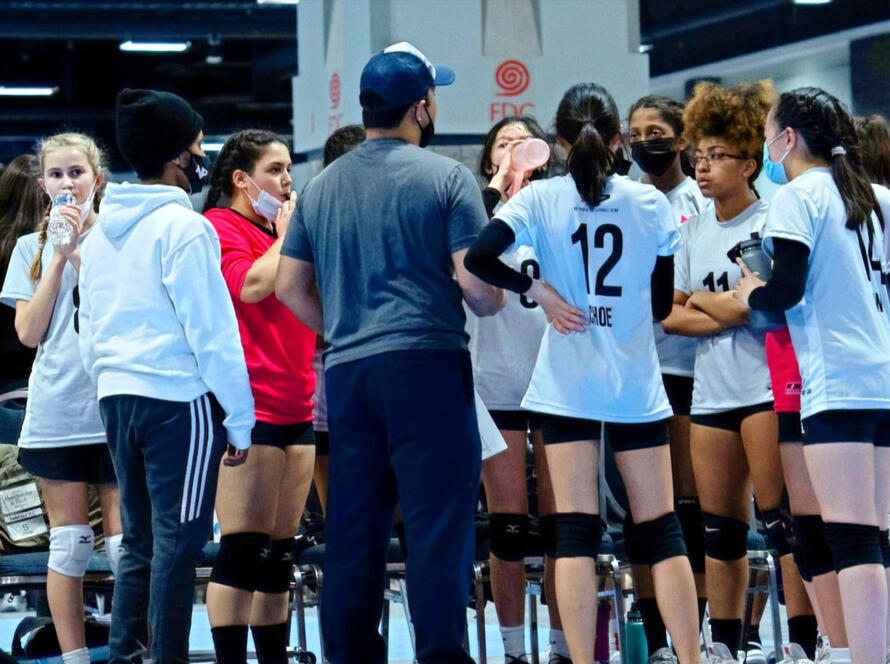By: Mariam Elhelaly
Upon reading the title of this blog, your first thought, as a parent, most likely would’ve been: “I would never, all my children are equal,” and while I totally respect your notion and sentiment, let’s face it: being a multi-sport household is tough. Different sports mean different uniforms, different teams, different clubs, different tournaments, traveling from place to place, trying to find any time between the pick-ups and drop-offs to just breathe for a second. Maybe, as a parent, you feel overwhelmed just thinking about having to drop off little Sally at volleyball then run and attend little Billy’s swim meet hoping he will finish in time to go pick up your twins from soccer and tennis. Maybe you feel you aren’t getting enough credit for juggling all that you do and in the end, you want to get the most out of your time and money and see your child be number one. So when little Sally wins gold at her volleyball tournament and little Billy finishes last at the swim meet, you might not even notice yourself berating Billy for his performance, wishing he played more like Sally on the car ride home. There’s no shame in admitting you’ve done it, because in this blog post you’re reading, I’m here to share with you some interesting psychological research that proves why little Billy’s loss may not be his fault, and why you should cut your kids some slack.
In 2019, psychologists Marco Correia and Antonio Rosado from the University of Lisbon, Portugal conducted research to study athlete’s sport anxiety compared to their gender and type of sport practiced. A sample of 601 male and female athletes ages 12-47 from organized sports in several schools and sports clubs were collected. 256 of the athletes played in team sports, while 345 played individual sports. Participants completed a 5 point Likert scale, responding to 15 phrases on a scale of 1 (not at all) to 5 (very much). The phrases were based on an instrument called the Sport Anxiety Scale – SAS 2, which reflects three dimensions of sports anxiety: worry (how worried athletes are about poor performance), somatic anxiety (physiological anxiety – stomach uneasiness, muscle tension, heart palpitations), and concentration disruption (difficulties athletes may have with focusing). Examples of the phrases asked include: “I worry I will not play my best,” and “My body feels tense.” The responses were analyzed quantitatively through psychological measures.
Now we come to the meat of the study – what did they find? It was found that female athletes and those in individual sports will generally have higher levels of anxiety, based on higher mean differences in two of the three anxiety dimensions on the SAS2 scale. Females and those in individual sports showed higher levels of somatic anxiety and concentration disruption, while those in team sports showed higher levels of worry.
The next question to ask would be: Why? What difference does the sport make? I’ll tell you! According to the study, individual athletes carry athletic performance burdens that are typically evenly dispersed among players in team sports. The pressure to perform the best, any mistakes that are made, the expectations of parents, peers, and coaches, and motivating oneself/focusing is all the responsibility of the individual athletes. Whereas with a team, teammates encourage each other, cover each other, and perform as a unit with mutual successes and failures. The pressure that comes with being alone may be adding to the pre-existing “nerves” and anxiety.
What You Should Do Now As a Multi-Sport Parent
So now that you know all this, what can you do to better support your players and break your bad habits of comparison? Here are a few tips:
Know Your Child: it’s important to understand that all your children are unique individuals with differing personalities, emotions, reactions, and abilities. How one child acts under pressure may drastically differ from how another acts, and how they handle themselves athletically will differ based on their sport and their preparations. Be Supportive: the last thing your child wants to see when they lose or make a mistake is the gloomy, frowning faces of their parents from the stands. As parents, you are a source of motivation for your child, not a reminder of what they did wrong and what they need to do next – they have a coach to do that job! Encouraging cheers and energetic clapping is sure to lift the spirits of your child. Enforce Comradery: as a parent, the last thing you need is one of your children bragging to others how much better they are at sports. Siblings should be just as encouraging as the parents, so when one child has a more favorable outcome than the other in their sport, DON’T COMPARE! Instead, enforce the idea that “you did your best and you’ll do better next time.” Sometimes all your child needs is support, which is your number one job as a sports parent.
No parent is perfect, and no child is either. While parents are trying to figure out the best way to parent, your children are also trying to find their best way around life and the things they like most. In the end, it is more important for a child to feel fully supported in an activity that they love doing (even if they aren’t amazing at it), than to feel berated in an activity they are doing to please you. Put yourself in your child’s shoes – they just want to have fun, and with fun comes success. Anytime you feel overwhelmed by the multi-sport lifestyle and itching to compare little Billy to little Sally, remember this study and remember that Billy tried his best, is dealing with a different athletic environment than Sally, and his loss might not be his fault!
__________________________________________________________________________________
Correia, M., & Rosado, A. (2019). Anxiety in athletes: Gender and type of sport differences. International Journal of Psychological Research, 12(1), 9–17. https://doi-org.mutex.gmu.edu/10.21500/20112084.3552





